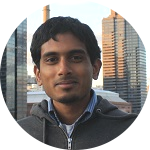
Last month, Papua New Guinea made international news headlines when ongoing protests at the University of Papua New Guinea (UPNG) in the capital city of Port Moresby turned violent. On 8 June 2016, eight students were shot by police and 23 students were injured as they called on Prime Minister Peter O’Neill to step down over corruption allegations.
"There can be no excuse for the use of high-powered assault weapons in dealing with a group of defenseless students in expressing their rights," said Lawrence Stephens, chairperson of Transparency International Papua New Guinea, in a public statement.
The protests were triggered by a number of issues such as the defunding of the police force’s anti-corruption unit and O’Neill’s repeated attempts to prevent investigations into his personal involvement in the fraudulent payment of AU$30 million (approximately US$22.8 million) to a legal firm.
Just last week, UPNG announced that it would suspend the academic school year in response to the protests and violence. Meanwhile, a cross-section of workers’ groups have threatened to shut-down services unless O’Neill resigns.
Papua New Guinea is the most linguistically diverse country in the world, with over 700 languages spoken amongst its seven-million-strong population. Its official language is English, a result of seven decades of colonial rule by Australia (previously, between 1884 and 1914, it was a German colony).
“Australian colonial rule [was] administered in keeping with British traditions, which were rooted in notions of racial and cultural superiority,” says Nicholas Ferns, a history professor at Monash University in Australia. “In New Guinea, there was a great emphasis on profit, with indigenous labour employed in conditions of near-slavery.”
Numerous human rights abuses took place under the Australian regime, which lasted in some form until 1975, making Papua New Guinea one of the last colonies in the world to achieve independence. Today, Australia remains the country’s largest donor, and Australian companies continue to play a major role in exploiting the island’s rich natural resources.
Phil Robertson, the deputy Asia director for Human Rights Watch, tells Equal Times: “Companies operating in Papua New Guinea need to be particularly cognizant of the requirement to operate in line with the United Nations Guiding Principles to Business and Human Rights, meaning starting from a point of ensuring their operations do not directly or indirectly violate human rights. The country is a long way from that ideal.”
Moreover, this influx of foreign investment and resource development has not benefited the majority of Papuans. Over half the population lives on less than a dollar a day and it is one of the most unequal nations in the Asia-Pacific region. The reason: theft of the country’s mineral wealth by foreign companies and complicit government officials.
Papua New Guinea is currently ranked 139 out of 167 countries in Transparency International’s (TI) Corruption Perceptions Index, and its human rights record is nearly as bad. All of this has a major impact on students as young people account for almost half of the country’s population.
“Constant excessive force”
The police are also a part of the problem: described by TI as highly corrupt and acting on the will of the prime minister, its use of excessive force against the protesting students was only the latest in a long line of police abuses.
“The fundamental problem in Papua New Guinea is the constant excessive force employed by the police, and frequent use of torture in custody, including against children,” says Robertson. “There has to be a political commitment that policing responses must respect international human rights standards, otherwise these abuses will continue indefinitely.”
The rule of law is routinely flouted in the country, all the way up to the prime minister, who had a warrant issued for his arrest by the National Fraud and Anti-Corruption Directorate (NFACD) in 2014. O’Neil responded by having the agency shut down. So far, the opposition has been unsuccessful in managing to hold a no-confidence vote on his rule.
“There is a growing discontent in the population about the largess of the abuse of government funds by the political elite who seemingly operate with impunity,” said Jonathan Pryke, a research fellow at the Australia-based Lowy Institute for International Policy to Deutsche Welle. “It is certainly a major factor in the unrest we are currently seeing.”
International pressure could make a difference, as Papua New Guinea is still a major aid recipient, but so far, the reaction from foreign countries has been muted.
“There should be a united front of embassies...demanding that the government set the situation right with the student protesters, and going forward, agree to protect core civil and political rights like freedom of expression, association, and peaceful assembly,” said Robertson, adding that such action is crucial in forcing the government to reform its policies.
For now, the status quo remains. In early June, university officials got an injunction to prevent further protests from taking place, which have – for now, at least – calmed the situation. But until the larger issues facing the country are addressed, it is likely that public anger will always remain just beneath the surface.








